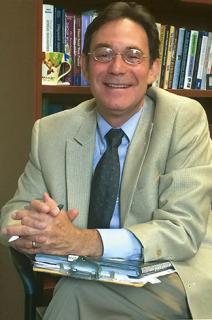Maybe it’s my imagination or my misperception — a parent might think — but my child seems like five children rolled into one. His/her personality is often one of extremes, in terms of hyperactivity, impulsivity, inflexibility and lack of behavioral control.
And a parent might wonder: Do I merely accept my child’s behavior as a natural disposition, or is there something more?
Might my child be suffering from Attention Deficit Disorder (ADD) or Attention Deficit Hyperactivity Disorder (ADHD)? And what exactly are those?
Michael A. Mazius, Ph.D., clinical psychologist and director of North Shore Center, LLC, shared his expertise about this.
“The traditional definition of ADD/ADHD is that it is one that was used to describe or label kids who presented with marked 1) inattention, 2) impulsivity and/or 3) hyperactivity compared to other kids who were identical or close in age, identical in gender, and similar with respect to cognitive ability,” he said.
A child who presents two out of the three conditions and struggles to learn and/or get along with similarly aged or older kids might have ADD/ADHD.
In recent years, more attention has been given to an expanded definition based on a neuroscientific concept called executive functions.
“Executive functions is a fancy term for different thinking abilities which can include cognitive shifting or mental flexibility, planning, organizing, managing time, getting to tasks and regulating affect/emotion,” Mazius said.
Work as a team
Despite a working definition, symptoms are not always present.
“Kids with ADD usually don’t present their symptoms when they’re interested in an activity/task,” Mazius said. “You’re more likely to see ADD symptoms when asking to do something that doesn’t strike his or her fancy, and that’s when one finds oneself grappling with the constellation of ADHD.”
Mazius gives the example of parents who remind a child to be ready for an early wake-up for a trip to the Wisconsin Dells. The morning of the trip, the child is likely to spring out of bed. On most other mornings, however, the child’s wake up routine is contentious.
Nor are symptoms clear-cut. “Kids with ADD,” said Mazius, “sometimes come across as anxious, and/or unhappy, and/or depressed, and/or to a degree learning disabled, because the way in which ADHD manifests itself can make academics extremely trying.
“So it isn’t necessarily a stretch to imagine that symptoms can work simultaneously with the ADHD or mask the ADHD.”
If symptoms are not clear-cut, and even at times not present, there are further indications.
“Kids with ADD do not respond to traditional intuitive parenting techniques, e.g., incentive systems, praise or punishment, and what happens is you find yourself frequently at odds with your child,” Mazius said.
“So if that’s your experience, that’s a potential clue that there is something not run of the mill going on, and might be an invitation to consult with the pediatrician, psychologist, or counselor.”
If the provider and parent do investigate to determine whether there’s a disorder, Mazius insists on psychological testing.
“Don’t settle on a rating scale or interviews alone,” he said. “That’s a surefire way of getting a false positive.”
If testing results in a confirmed disorder, professional help is available in the form of counselors, social workers, psychologists and others.
In all cases, “It’s critically important that the provider has contact with the child’s pediatrician and will go out to the school to talk with the teachers,” said Mazius.
“This provides opportunities to consult with the teacher, assist the teacher to help the child grow his/her skills, his/her capacities, to pay attention, to reflect on his/her urges, and that happens when counselors, parents, and teachers are working together. You have to work as a team. Collaboration is the key.”
In addition, between a family and a provider, “There has to be trust and comfort, good chemistry,” he said.
It is possible that “you might find the best approach … is to hire a teacher privately, possibly a special education teacher, who knows how to help children grow their executive functions,” Mazius said.
“Most of us grow our executive functions naturally, but children with ADD need direct instruction. It is unlikely that the executive functions will be instructed in a school setting, but needs to be done privately, and the earlier you do it, the better.”
School is not the only setting to assist the child. Other important components are cognitive behavioral therapy (CBT) and medication.
There are many CBT methods, all of which aim to “Use the mind to become a more reflective, focused, organized, plan-full person, by questions that teach how to become more observant of yourself and more reflective about your behavior,” said Mazius.
Stimulant medications, said Mazius, can include positive and negative reactions. Positively, stimulants enhance attention and foster productivity. Stimulants can alleviate some hyperactivity by physically slowing the child.
On the other hand, Mazius is clear that stimulants don’t necessarily enhance executive functions and they usually aren’t panaceas.
“The potential downside of stimulant medication includes appetite suppression, sleep problems in the sense it takes kids longer to fall asleep, and rebound effects, which is a term that describes kids who are coming off their medicine become highly emotional,” he said. “The other possible side effect is if a child is anxious, a stimulant can make him or her more anxious.”
The points that Mazius offers above are only parts of a greater puzzle that could not all fit into this article.
Yet, overall, Mazius believes with appropriate therapies, kids with ADD/ADHD, “Can take advantage of their wonderful minds and personalities and have highly meaningful, successful lives.”
This article does not offer case-specific medical/psychological/psychiatric advice and is not intended to be a diagnosis. If you seek medical advice, contact your physician.
Joshua Becker is a Spanish teacher for Shorewood Public Schools and a freelance writer.


